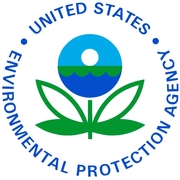
Recently, the U.S. Environmental Protection Agency (EPA) announced a new policy that requires all 10 regional offices to secure approval from headquarters before initiating contact with companies that could be subject to enforcement action for a potential violation. When learning about this development, my initial reaction was why this hasn’t been the case all along? One of the biggest issues with government bureaucracy is that there are simply too many layers of red tape leading to regulatory inaction.
Part of the reason for this regulatory inaction is because of the lack of standardization between agency headquarters and the field offices. In my experience, too often oodles of wasted time is spent between agency headquarters and field offices squabbling over the interpretation of a rule and how it should be applied to affected regulated parties. The disturbing trend of allowing inspectors to interpret rules and guidance as they see fit opens up a world of subjectivity that creates confusion for the regulated parties when they try to comply and throws the regulatory process into chaos.
This trend is also one of the reasons why we have seen so many agencies over the last two decades offer up an extraordinary amount of guidance material to address the lack of standardization with how rules are interpreted and enforced. Interestingly enough, the Federal Aviation Administration recently announced a new Regulatory Consistency Communication Board (RCCB) that allows industry to raise concerns to it so the RCCB can then “provide clarification to internal and external stakeholders on questions related to the application of regulations.”
Agency headquarters leadership are the ones that should determine how rules should be implemented and interpreted by inspectors out in the field. This process eliminates subjectivity by all parties and allows industry, whether it agrees with the rule or not (and if the rule followed the proper rulemaking process, industry can state its case then), to know at least what is expected of them in complying with a rule.
And while some are blasting the EPA decision as politically driven, I applaud the EPA for making a commonsense decision that is long overdue and will provide a process whereby tax dollars are used efficiently and not wasted on back and forth bureaucratic subjectivity.